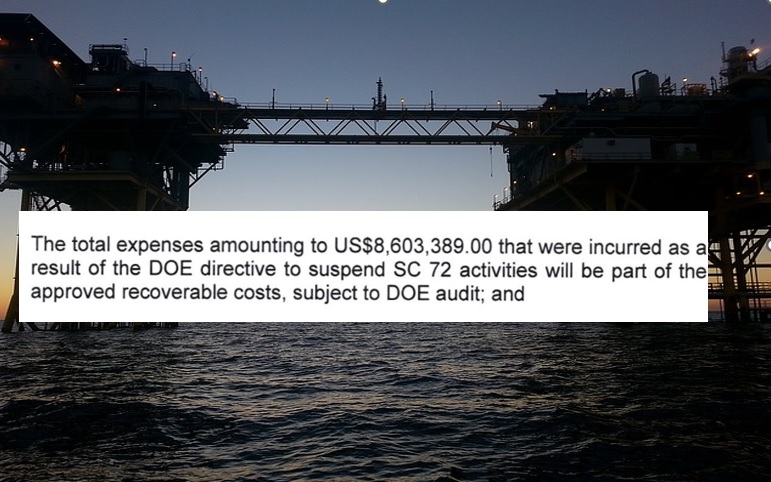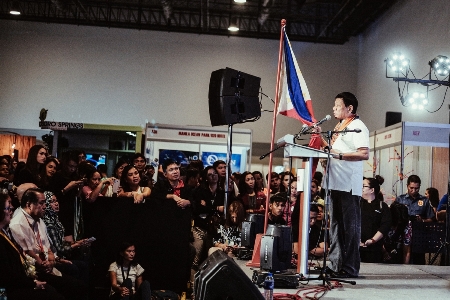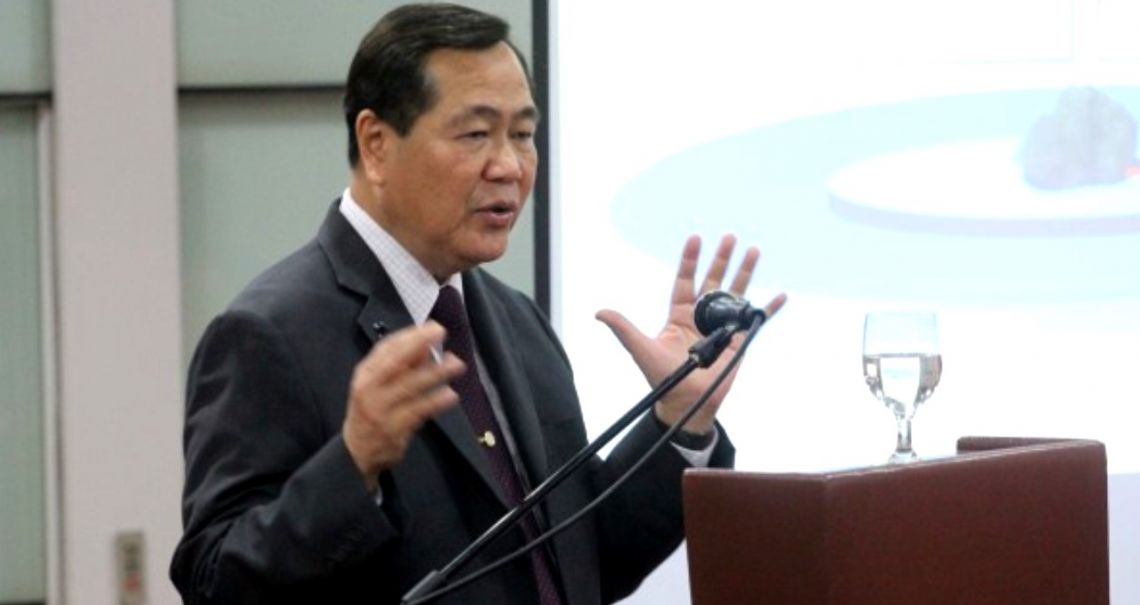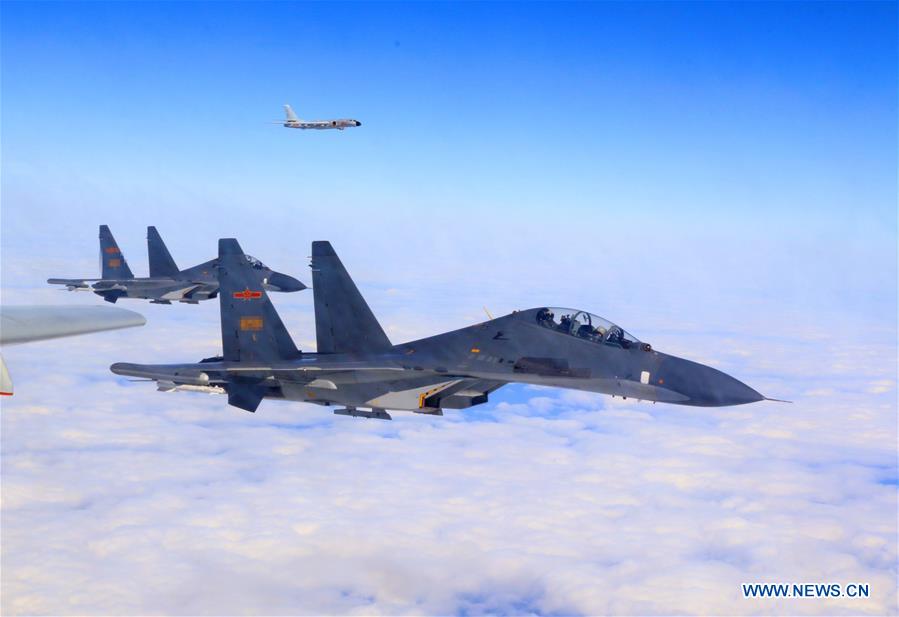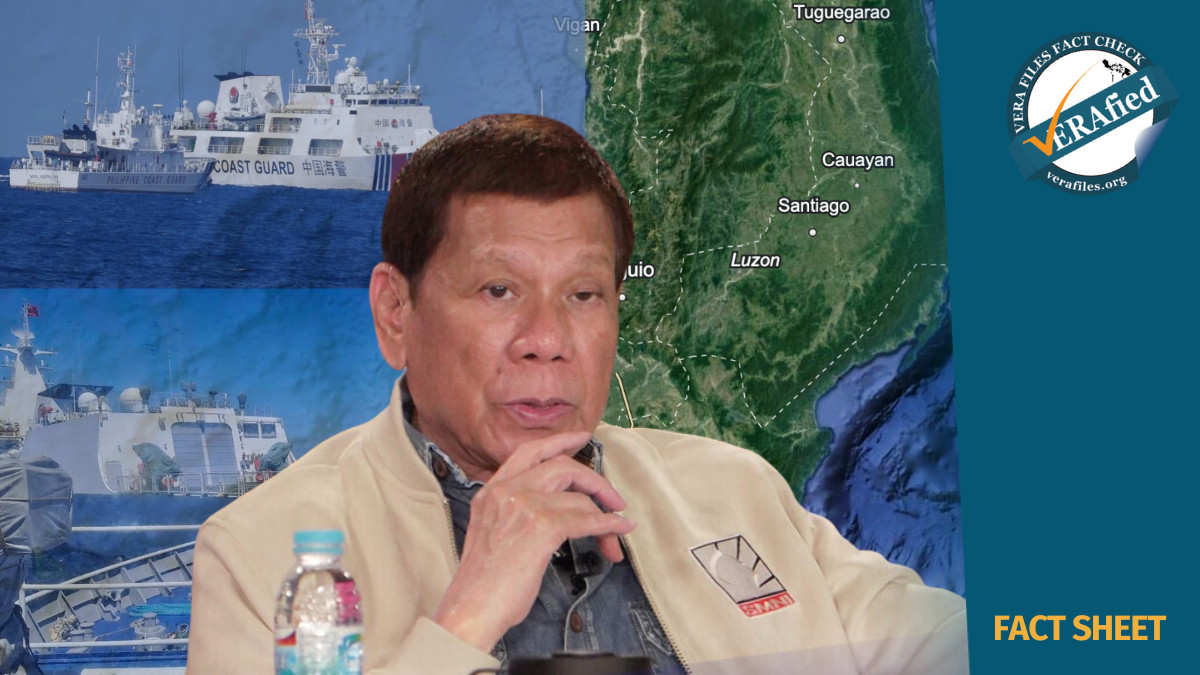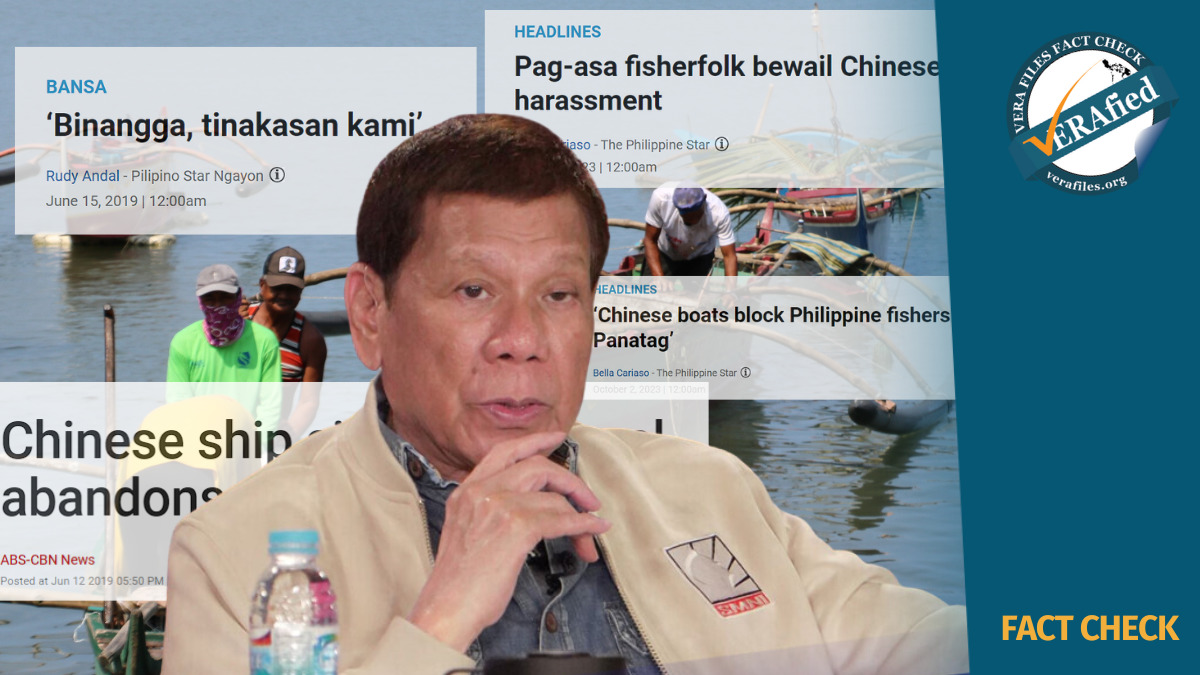When former president Rodrigo Duterte buckled under China’s bullying and reimposed a 2014 moratorium on drilling in the Reed Bank, off the coast of Palawan, in April, he and his advisers most likely did not realize that it would cost the government at least $13.78 million (about P800 million with today’s exchange rate) in unnecessary spending.
This is the amount that the Department of Energy (DOE) has agreed to compensate PXP Energy Corp. for all its expenses in two projects in the area since October 2020 when Duterte initially lifted the moratorium. The removal of the suspension had given the power firm the go-ahead to resume drilling under Service Contracts (SC) 72 and 75 in the Reed Bank where the Philippines and China have overlapping claims.
But there was no progress because Duterte got spooked by Beijing into suspending all exploration activities again — after PXP Energy had spent all that money to prepare for the drilling of additional wells in search of that precious oil and gas believed to lie at the bottom of the sea.
And now the Filipino people have to pay for it. It is now painfully clear that Duterte’s mistake is taking a heavy toll on state coffers and the pockets of ordinary Filipinos already reeling from the prolonged pandemic and high cost of living.
This is the cost of poor decision-making by weak leaders. It is the price the country must now pay for cowardice.
The Duterte administration’s flip-flopping on this crucial issue set aside the country’s urgent need to find another source of energy to replace the fast-depleting gas fields of Malampaya which provides power to Luzon and despite the specter of even higher prices of electricity. The gravity and full impact of that decision will hit Filipino consumers like a bomb.
The government can ill afford the hundreds of millions in “recoverable costs” that the DOE has committed to PXP Energy and it is only the tip of the iceberg. This wasteful spending could have been avoided if the former administration only had the courage to stand up to China, assert the country’s sovereign rights, and put the Filipino people’s welfare first.
The present administration must do better, but all we have heard from President Ferdinand Marcos so far is rhetoric that he will enforce the 2016 arbitral ruling on the South China Sea and that he will not give up any part of Philippine territory. As retired justice Antonio Carpio has said, we need to see the president “walk the talk.”
This week, Marcos said he hoped to discuss the territorial dispute with Chinese President Xi Jinping on the sidelines of the summits of the Association of Southeast Asia Nations (ASEAN) in Cambodia. He also stressed the need for the wishful-thinking Code of Conduct (COC) in the South China Sea between Beijing and ASEAN, where five coastal states with contesting claims with China belong.
While these may be moves in the right direction – and work for good optics — what we really want is to see Marcos match his speechifying with action. Substance, results, not empty promises and false hope.
We need to know if Marcos can face off with China the way other claimant countries like Malaysia, Indonesia, and Vietnam have and permanently lift the indefinite ban on oil and gas exploration; provide security to allow safe passage for drilling and survey vessels without fear of harassment or harm; and regain pieces of the country’s dignity through a solution for peaceful co-existence with China and all stakeholders in this decades-long territorial dispute.
Marcos must likewise provide a concrete plan on how to prevent an impending energy crisis that could cripple the economy and force more Filipinos to fall below the poverty line.
The late president Benigno Aquino tried to achieve all this with SC 72 and 75 which would have been operational years ahead of Malampaya’s expected shutdown. He brought China to arbitration in The Hague but was forced to order a moratorium on exploration operations in 2014 after China harassed PXP’s survey ships.
With the country’s victory in the 2016 arbitral ruling and the signing of an agreement for joint oil and gas development with China two years later, there seemed hope that Duterte could somehow wangle a deal to allow the service contracts to proceed without trampling on the country’s sovereign rights.
It did not happen. Duterte fumbled.
And then there is the hope for the conclusion of a COC that some think may be a peaceful solution to the South China Sea dispute. Initially, the foreign affairs department was optimistic that with the Philippines in charge of the dialogue between China and ASEAN, the document could finally be signed.
Of course, Beijing would not let that come to pass unless its conditions are met and it is doubtful if Marcos’ boyish charm in Cambodia can change that.
Besides, the impending energy crisis is an impatient woman. The clock is ticking as Malampaya is bound to dry up within the term of the present dispensation. Chinese aggression is real as recent photos of the South China Sea reveal military facilities and heavy infrastructure on maritime features taken over and reconstructed by Beijing.
Clearly and literally, this country cannot afford more mistakes.
The views in this column are those of the author and do not necessarily reflect the views of VERA Files.
